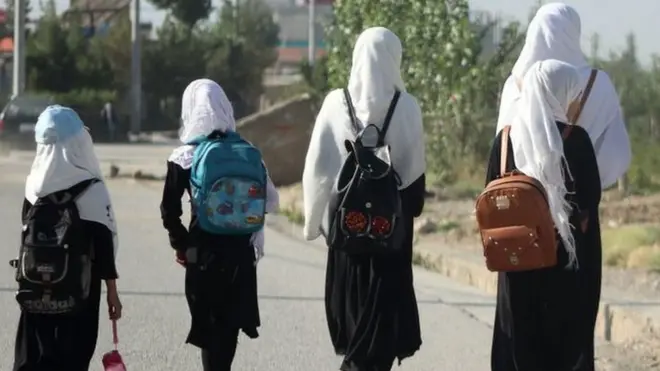As stated by the top administrators at a number of Afghan nursing and midwifery schools, female students are going to be unable to participate in current and future programs. The new policy was launched by an order issued by the supreme leader of the Taliban, currently ruling the country for the past three years. The following day, in the capital, healthcare authorities had a meeting with administrators of educational institutions. The purpose of the gathering was to brief them on the latest verdict.
Regarding the new ban, no formal statement has been published or issued. However, during a gathering, university heads were told that women and girls are no longer authorized to pursue education at their schools.
No information or explanation was given to the people, media or the students. The public was simply notified of the supreme leader’s edict and requested to act accordingly.
Scores of executives were there, according to the head of an institution that was present during the meeting.
After getting confused regarding the new abrupt regulation, a senior staff member of another center informed the media that his supervisor attended an additional briefing with health professionals yesterday.
According to the anonymous source, schools were allowed ten days to conduct final examinations. With the lack of a formal directive, certain executives kept up with their programs as usual, whereas others approached the government for confirmation.
Shortly after the Taliban group regained supremacy three years ago, they prohibited the females from pursuing higher education beyond middle school. That was one of the drawbacks that the United Nations called gender-oriented apartheid. As a single remaining option, nursing institutions attracted an abundance of female students.
Health Crisis
Currently, they constitute the almost 90% of the pupils at these educational institutions. There are approximately 150 private and about 10 administrative health facilities in Afghanistan. They provide two-year programs in eighteen distinct fields. The fields cover everything from dental care, pharmacology, and anesthesia to midwifery. Figures from the health department estimate that 35,000 female students take part in these programs.
At a private school in the capital, a midwifery lecturer stated that she got an update from the administration. Without detailed clarification, the message instructed her not to get back to work until more information was given. It was a major disappointment and shook the workers and students psychologically, according to the lecturer. For the female community who were prohibited from attending colleges and universities, this served as their only opportunity for development.
The charge d’affaires for the United Kingdom expressed his profound worries about the new policy of the Taliban ruling leaders. As he wrote on social media, “this is another affront to women’s right to education and will further restrict access to healthcare for Afghan women and children.”
According to an official in Afghanistan’s health department, the limitations would put more pressure on the currently troubled system of healthcare. It’s yet clear what this implies for the health of females. The United Nations stated in 2023 that in order to fulfill the requirements of the entire country, Afghanistan must recruit an extra 18,000 midwives.
The World Health Organization reports that Afghanistan is currently experiencing the highest rates of mortality among mothers worldwide. Based on a survey published last year, there were 620 mother fatalities for each 100,000 babies born in Afghanistan.






![‘Deserted in the Desert’; Neom’s Drawbacks Enlightened Following CEO Dismissal [Part I]](https://al-sarira.com/wp-content/uploads/2024/12/yi-75x75.webp)
